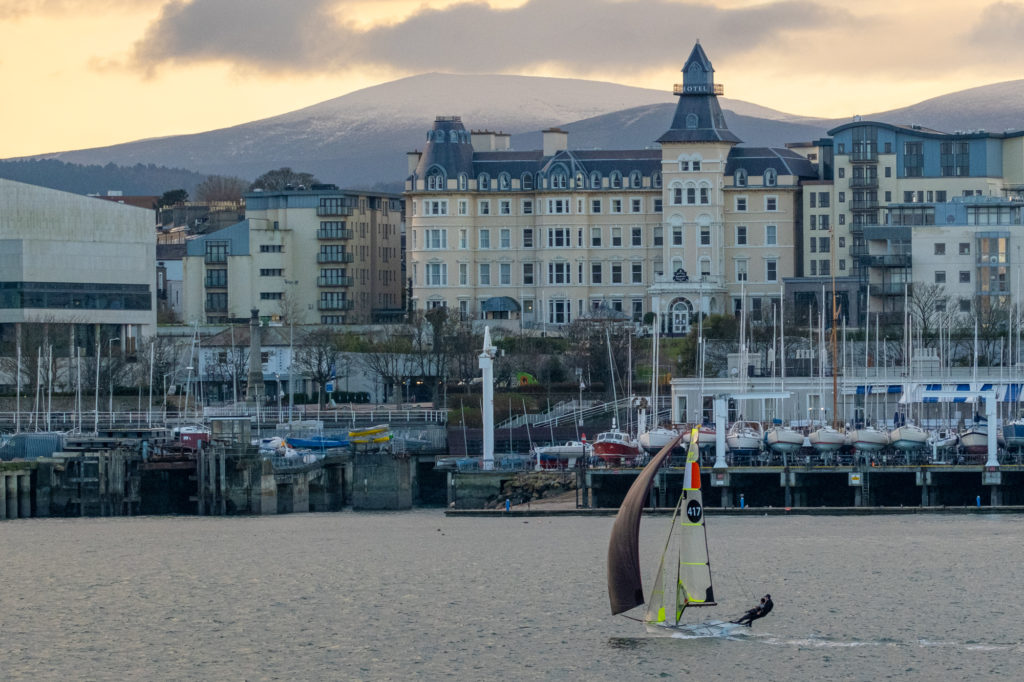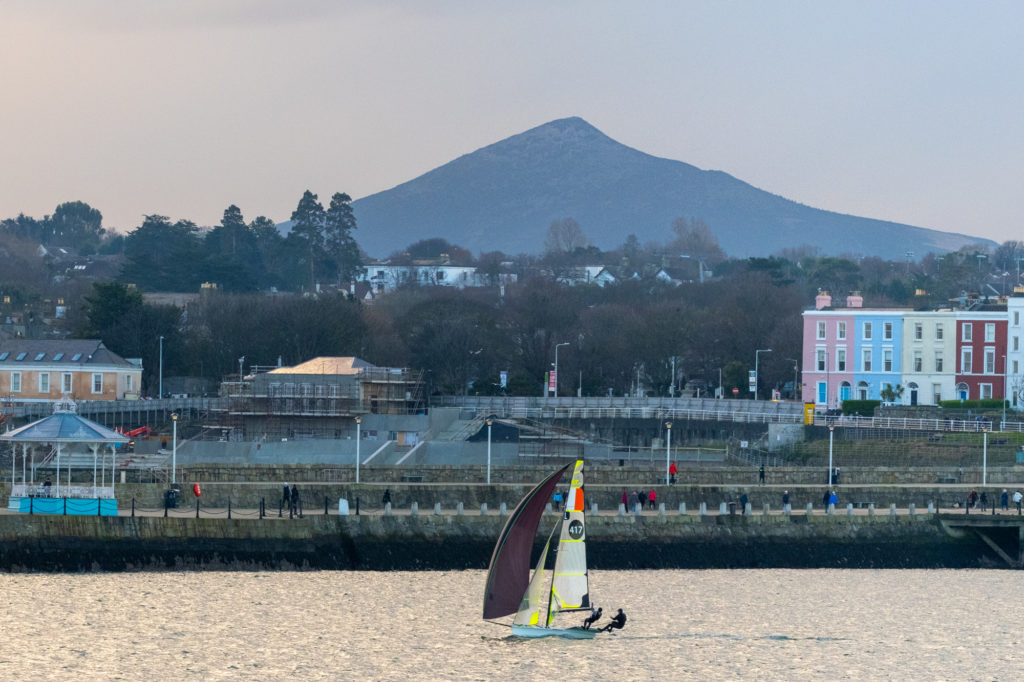The new trading complications for a partitioned island half in the European Union got me thinking about something Peter Frankopan wrote. He opined that ‘US policy … is being developed in response to Chinese and Russian plans, rather than offering an independent and autonomous vision …’ This quote was in The New Silk Roads, in the chapter about roads to future, about Africa, and US policies where US support is described as being matched to US priorities rather than the needs of the supported.
Would you prefer gold in the sky or gold on the water?
The BUILD Act was mentioned earlier in that chapter. That’s a US policy ‘to provide countries with a robust alternative to state-directed investments by authoritarian governments’. It was passed late 2018 ostensibly ‘to compete with China’s global activity in the infrastructure and development assistance space’ according to an article on Lexology posted in 2018. They also mention that the European Commission adopted a ‘Connectivity Strategy’ whereby ‘the EU intends to present candidate countries with a credible and sustainable alternative offer for connectivity financing.’
The EU Connectivity Strategy and the American Better Utilisation of Investments Leading to Development (BUILD) and are designed to compete with the Chinese Belt and Road Initiative. The EU thinks this is worth an annual budget of about $500 billion. The US announced a 2018 commitment of $113 million, in the same range as the reported earnings of Jared Kushner and Ivanka Trump in 2017.
Meanwhile China spends trillions aiding over 60% of the global population. It’s aligned (or sidelined) Russia with massive energy deals and huge investments through the Shanghai Cooperation Organisation of which it is host and chair. And of course, China and Russia are continuing to cooperate on military initiatives including nuclear arms polices. Given the SCO ambitions, to ensure security and maintain stability across the vast Eurasian region, one wonders when SCO support will be matched to priorities rather than the needs of the supported?
The axis of the world’s power continues to move deeper into Asia. One might also wonder how long ‘western’ standards like Greenwich Meantime can last? Or whether the Dow Jones will matter in 2050? Are we preparing to feed the world, restrict climate damage, increase biodiversity, improve antibiotics, mitigate plastics and prevent pandemics? Or are humans being prepared for a one party planet?
I mentioned recently that I need a new strap for my FitBit that’s two generations behind the times. The local shelves and online retailers in Ireland couldn’t help. UK sites wouldn’t deliver to Ireland. Ditto Germany and France. So once again, Brexit having happened, I tried the Amazon site in the UK today and I was able to complete a purchase. It’s being fulfilled by Amazon EU sarl and that’s a bit odd since I checked and the Germans and French still won’t ship to me.
The FitBit was designed by an American company, manufactured to order in China and then sold by a British subsidiary of an American pharmacy company. I can’t say where the raw materials came from. I have no idea where the taxes are paid. Nor how much water is used in making a FitBit strap. Nor the carbon cost. It seems that FitBit strap replacement saga itself involves a cast that includes American vendors, Chinese manufacturers and purchasers living in Europe.
In short, all I can say is that human transglobal cooperation is a very fragile thing. The IMF identifies a top ten of Risky Import Products by their Value in Trade. This includes blood products, tyres, taps and much more besides. The IMF also works out which countries are most vulnerable to interruptions of trade both as importers and exporters. There’ve been enough tsunamis and other catastrophes to calibrate the predicted vulnerabilities.
‘Chad imports the highest share of risky products (43.4%), followed by the
Republic of Congo (39.4%), Gabon (38.9%), Equatorial Guinea (37.8%), and Turkmenistan (37.6%).’
It gets more complicated with the just-in-time procurement policies.
‘International supply chain countries with more than 30% of imports of fragile network products in 2014 include Mexico (37%), Hungary (36.2%), Romania (34.2%), Slovakia (34%), the Czech Republic (33.9%), Canada (31.5%), Germany (30.8%), and Austria (30.7%).’
What I want to know is how supply chain vulnerabilities manifested during the pandemic?
And whether the ultimate solution will be a one party planet?
Reference: Assessing the Fragility of Global Trade: The Impact of Localized Supply Shocks Using Network Analysis by Yevgeniya Korniyenko, Magali Pinat, and Brian Dew
Caveat emptor: my daily musings may be incomplete and incorrect.



Leave a Reply